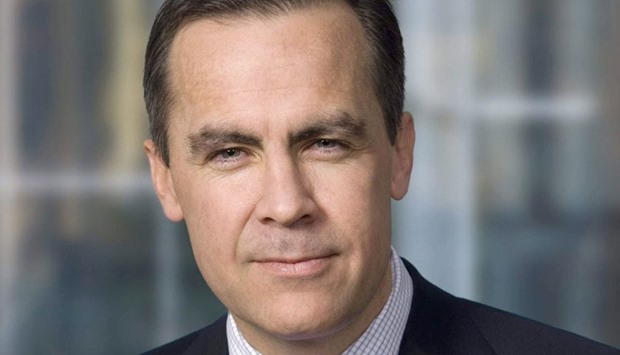
u201cIn the shorter term the transition could bring some challenges to financial stabilityu201d
Bank of England Governor Mark Carney yesterday warned Brexit campaigners that the UK’s financial stability could even be thrown into jeopardy in the short term by pulling out.
He has previously signalled that interest rates could rise if Britain split from the EU.
Appearing before the Commons Treasury committee, the bank chief said “some activity” would be expected to disappear from the City if the country voted to leave the European Union on June 23.
“Certainly there is a logic to that and there are views that have been expressed publicly and privately by a number of institutions that they would look at it,” he told MPs.
“And I would say that a number of institutions are contingency-planning for that possibility, major institutions, foreign-headquartered institutions who have their European headquarters here. So there would be an impact.”
Referring to the possible relationship between Britain and the EU after a Brexit, he added: “I could not give you a precise number in terms of institutions or jobs or activity (that could be affected) because we don’t know where we would be on that continuum between a form of mutual recognition or purer third-country access.”
Pressed by Conservative MP Chris Philp to confirm that there would be “some degree of loss of business” for the City if Britain lost influence over regulations, Carney replied: “Without question.”
The bank boss said that in the long term Britain could draw up a system of rules, regulations and tools outside the EU to protect the economy from financial crashes and other risks. However, he also emphasised: “In the shorter term the transition could bring some challenges to financial stability.”
Sir Jon Cunliffe, the bank’s deputy governor for financial stability, told the committee that outside the EU the UK would be entering “uncharted water”. He added: “To me it’s not likely that we would be able to remain in the single market and have the same influence on setting the rules as a member of the EU if we were outside the EU.”
The bank chiefs’ warnings will spark fresh questions over why Mayor Boris Johnson is championing a Brexit given that the City is so crucial to the capital’s economy.
The bank also gave heavyweight backing to the EU deal negotiated by David Cameron, saying it addressed key issues that it had identified as “being important”. In a 19-page letter, Mr Carney highlighted that there was a “legally binding commitment” to ensure Britain is not discriminated against in the single market because it has kept the pound rather than adopting the euro.
The bank also argued that membership of the EU reinforces the “dynamism” of the UK economy. Carney emphasised City chiefs had raised with him the importance of the “passporting” arrangements that allow their firms to trade in other EU countries.
He came under fire from a Brexit cheerleader, Tory MP Jacob Rees-Mogg, who said it was “beneath the dignity of the Bank of England” to push speculative pro-EU arguments.
Carney hit back strongly, saying: “I’m not going to let that stand.” He said the language the bank was using on a highly political subject was “careful, not conclusive, arguable”. He denied pushing “standard statements” favoured by the Stay campaign.
The governor also said that if the UK were to leave the EU, the cost of complying with regulations could fall for domestically-focused firms but were likely to rise for those doing business on the continent.
Carney angered Eurosceptic MPs before he appeared at the committee by announcing banks will be offered billions of pounds of extra liquidity to avoid a post-Brexit financial crisis.
